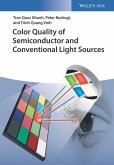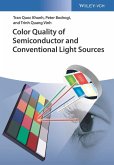Provides state-of-the-art, in-depth knowledge on the principles, devices, and applications of collinear holography In the era of Big Data, traditional magnetic and optical storage technologies are unable to satisfy the growing demand for reliable, scalable, cost-effective, and energy-efficient data storage. Holographic storage, considered the most promising technology for meeting the future storage needs of the information age, adopts a three-dimensional volume storage mode with a theoretical storage density vastly greater than conventional optical disks. Collinear Holography: Devices, Materials, Data Storage is a comprehensive, up-to-date account of the volumetric recording technology that combines large storage capacities with high transfer rates and exceptional reliability in optical data storage systems. Written by pioneers in the field, this authoritative book provides detailed coverage of the key technological approaches, theories, applications, systems, devices, and components in the rapidly advancing field of holographic data storage. * Explains the principles of collinear holography, its different system setups, key devices and components, and current challenges * Describes the materials, data and media formats, servo controls, and read/write characteristics of collinear holography storage systems * Details collinear holography in current applications such as holo-printing, correlation, and encryption *Discusses futures technologies including the Holographic Versatile Disc (HVD) and the The Holographic Versatile Card (HVC) Collinear Holography: Devices, Materials, Data Storage is an indispensable resource for applied physicists, electrical engineers, and materials and information scientists in both academia and industry.
Dieser Download kann aus rechtlichen Gründen nur mit Rechnungsadresse in A, B, BG, CY, CZ, D, DK, EW, E, FIN, F, GR, HR, H, IRL, I, LT, L, LR, M, NL, PL, P, R, S, SLO, SK ausgeliefert werden.









